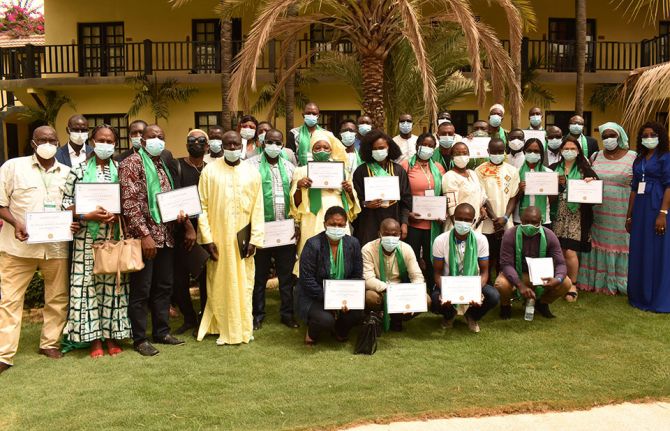

Feature Story
Training on data on the location and size estimates of key populations in western and central Africa
25 June 2021
25 June 2021 25 June 2021Since key populations and their sexual partners account for 69% of new HIV infections in western and central Africa, reaching 95–95–95 among key populations will result in a significant impact on the overall HIV epidemic in the region. However, programmes focusing on key populations are insufficient. In western and central Africa, funding for programmes for key populations represented only 2.4% of the region’s overall HIV funding between 2016 and 2018, according to Frontline AIDS.
Having strategic information—quality data and analysis—is vital for an HIV response, for ensuring accountability and since it allows ambitious and measurable time-bound targets for monitoring progress to be set.
“The old adage “What gets measured gets done” may be a cliché, but it is still very true for the HIV response. Over the years, data collection, analysis and dissemination have led to a better understanding of the HIV epidemic and helped programmes to reach the right people in the right place at the right time,” said Marie Engel, Adviser at the UNAIDS Regional Support Team for Western and Central Africa.
In order to strengthen their skills in building and analysing data on the location and size estimates of key populations, approximately 30 people from four countries—Senegal, Côte d’Ivoire, Guinea and Guinea Bissau—and who were mainly from organizations for key population recently attended a training session in Saly, Senegal. During the training, which was part of a subregional project called RECCAP, funded by Expertise France, the Enda Santé nongovernmental organization, in collaboration with Johns Hopkins University, trained the participants on basic statistical analysis methods, population size estimation, health mapping tools and the analysis and presentation of collected data. UNAIDS and the World Health Organization sponsored the participation of several participants.
“The development of local capacities will allow for programmes that are best adapted to contextual changes by locating the dynamics of HIV vulnerability and analysing how sociospatial combinations influence epidemiological data. The diversity of the selected participants’ profiles and the plurality of the training team’s experiences guarantee a transfer of know-how and true sharing,” said Daouda Diouf, Enda Santé’s General Manager.
It is hoped that the training will empower key populations to exercise leadership—an essential mainstay of HIV responses to ensure that they are inclusive, equitable, effective, efficient and sustainable.



